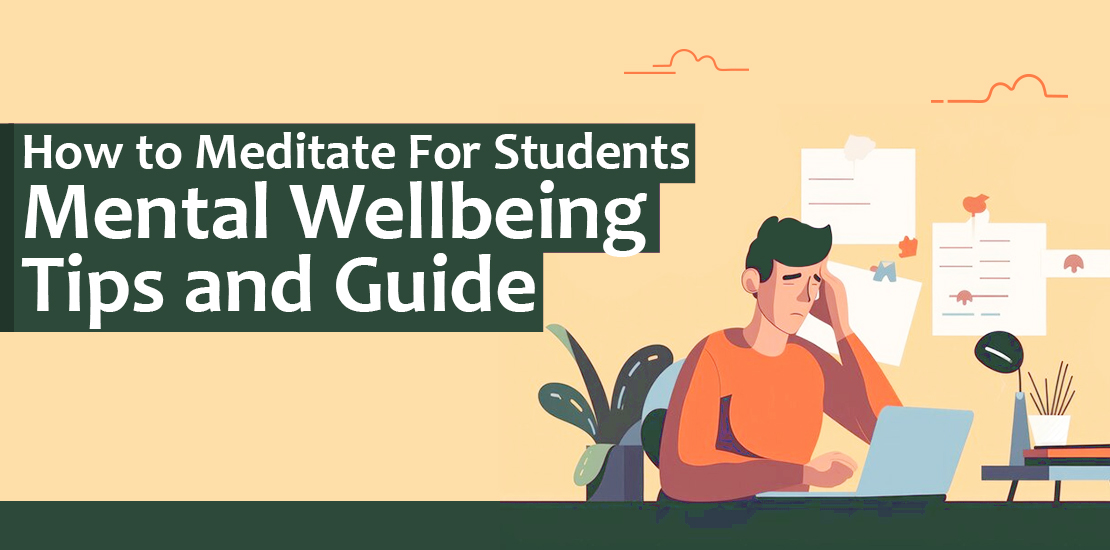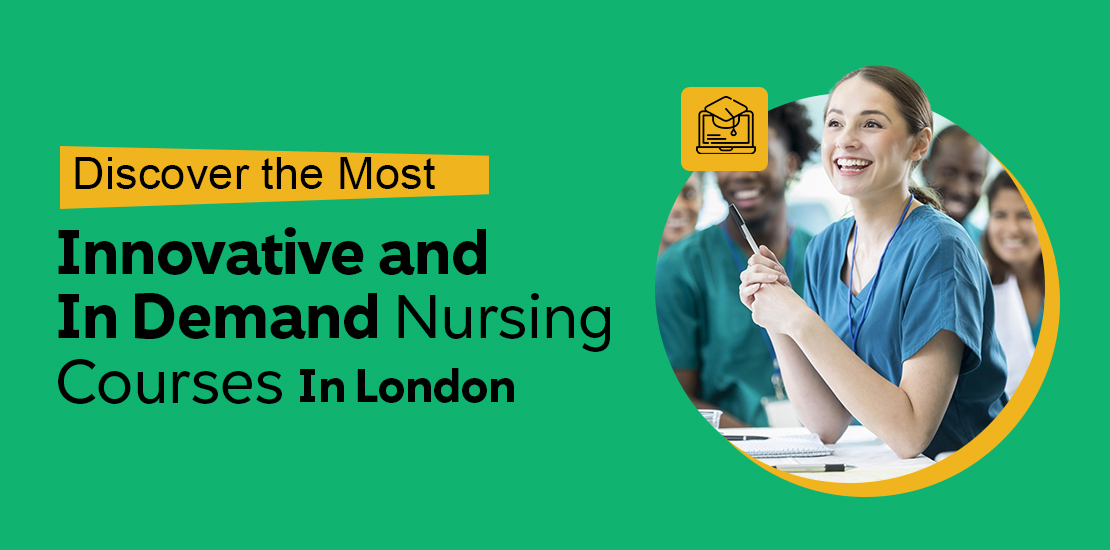Unlock Inner Peace: Learn How to Meditate Today! Transform Your Life in Just Minutes. Discover Expert Techniques. Dive In Now!

Meditation is only a means for us to pause for a second and be calm. Once you learn how to meditate, you will learn to focus and think deeply. It allows us to pause, breathe, and recharge in a chaotic environment.
College students are suffering from widespread mental health widespread. Students look out for assignment help to balance their academic lives. Although there has always been a problem with emotional well-being. However, research reveals that the situation is getting worse. More than 60% of college students, according to the American Psychological Association, meet the signs and symptoms of at least one mental health issue.
We will also dive into the world of meditation, focusing on students’ mental well-being. We will discuss books on how to meditate and the advantages of meditation by using this beginners’ manual.
Tips for Wellbeing and Mental Health
Before we get into how can we meditate, we first understand the tips and why it is important. Mental well-being is a condition of prosperity that envelops the shortfall of dysfunctional behaviour as well as the presence of positive qualities.
The pressures of assignments, domestic work, and exams might be challenging to students’ mental health. Students of various fields look for specialised writers for their assignments. Such as a medical or a nursing student searching for nursing assignment writers to help them complete their coursework.
We will discuss five practical tips for wellbeing and mental health that are easy to include in your daily life:
Practice Meditation:
Meditation comes at the top of the list of tips for mental wellbeing, as we previously discussed. Meditation is a valuable tool for promoting mental health. It lowers pressure, improves focus, and promotes near-to-home stability. Take out a few minutes each day for meditation, and as you grow more comfortable, gradually lengthen your sessions.
Stay Active:
Regular physical activity is important because it is essential for your emotional health. Meditation improves your endorphins. Endorphins, which are often used to lift one’s mood, are released during exercise. Consider adding practice to your daily plan, whether it is a walk, a run, yoga, or some other activity you enjoy.
Eat Nutritious Food:
Your mental health is a state of well being that depends on on your diet. Your overall diet has an impact on your mood and prosperity in general. Establish a sensible diet plan that includes natural foods, veggies, lean proteins, and whole grains. Avoid excessive amounts of caffeine and sugar because they might cause energy peaks and crashes.
Maintain a Supportive Social Circle:
One of the tips for better mental wellbeing is human connection or being social and vocally expressive. Maintain a good relationship with family members and seek assistance as needed. Talk about your thoughts and feelings with trusted individuals who can provide guidance and regular assurance.
Prioritise Sleep:
You need enough sleep to be mentally and physically healthy. Make sure you receive 7-9 hours of quality sleep each night. Create a sleep routine that encourages relaxing, such as reading or listening to music.
How to Meditate for Students – A Step-by-step Guide
For students to improve their mental health and wellbeing, manage stress, and sharpen their focus, meditation is an important tool. You can easily combine this guide into your regular everyday practice.
Why Meditation for Students?
Before we start with the ‘how,’ it is important to understand the meaning of mental well being and why it is necessary for students. Student life can be very upsetting with assignments, tests, and different obligations. Meditation offers a method for altering this pressure, further developing fixation, and advancing profound equilibrium.
The mental well being meaning refers to an individual’s personal, mental, and social condition. Portrayed by a feeling of satisfaction, flexibility, and the capacity to adapt to life’s difficulties.
Here is a concise explanation of the most effective way to meditate. You will understand how to focus on your mental health and wellbeing to live a peaceful daily life:
Set a Calm Space:
To learn and get a grip on how can we meditate, you must find a calm spot where you can sit subtly. It can be your room, the edge of the library, or a peaceful park.
Sitting Comfortably:
Sit in a comfortable position. You can use a seat, pad, or sit on the floor. Ensure your back is straight to maintain good posture.
Shutting Your Eyes:
Gently close your eyes and try to find a focus within. Focus on your internal peace and try not to pay attention to your external distractions.
Focus on Your Breath:
Focus on your breath. Inhale and exhale calmly. Inhale with your nose and exhale with your mouth, making your lips in an ‘O’ shape. Feel the vibe of your breath entering and leaving your body.
Observe your Thoughts:
While you start meditating, many external and irrelevant thoughts will cross your mind. This is normal, and you should not pay attention to these thoughts. Once you feel distracted, observe them and return your concentration to your breath.
Begin with Short Sessions:
Assuming you are new to learning how to meditate, begin with short sessions, maybe 5-10 minutes. After some time, you can steadily build the length as you become more used to it.
Consistency is Vital:
The way to effective reflection is consistency. Attempt to reflect day to day, regardless of whether it is only for a couple of moments. Over the long haul, you will see a positive effect on your psychological prosperity. It is important to focus on how do you meditate because the better you observe, the better your focus will become on your meditation.
Explore Mind-Blowing Books to Learn Meditation
You may find plenty of excellent books on how to meditate to guide you on this journey. The books “The Wonder of Care” by Thich Nhat Hanh and “The Force of Now” by Eckhart Tolle are a couple of recommendations.
However, the following is a list of a few books recommended by us, which help you how can we meditate properly. These books provide crucial information and methods to help you develop your reflective practice.
“The Miracle of Mindfulness” by Thich Nhat Hanh: This book offers practical wisdom for mindfulness and peace. “The Power of Now” by Eckhart Tolle: This amazing book emphasises how can we meditate correctly and guides us to the present moment and inner stillness. “Meditation for Beginners” by Jack Kornfield: This book motivates readers with a simple how to do meditation guide. Kornfield, in this book, focuses on beginners following the meditation techniques. “The Art of Meditation” by Matthieu Ricard: This book is a perfect selection for students looking for how to do meditation correctly. It offers profound insights into meditation’s transformative power.Types of Meditation
There are different types of meditation. If you are a keen learner and want to know how to do meditation for students, then you will need to understand the types of meditation in detail. As Rumi says,
Do not feel alone, the whole universe is within you.
This quote by Rumi signifies that inside every one of us, there exists a huge and neglected inward universe. Meditation can be the way to opening this universe and discovering a sense of reconciliation inside. We have compiled types of meditation for students. This section will not only help you learn to meditate but also help you academically. Usually, academic institutes demand students to write essays on meditation.
Students need more information about meditation’s interesting topic. They opt to seek academic assignment help, so these service providers help them write their desired standard assignments or research papers. Let’s investigate types of meditation in more detail to assist you with acquiring a more profound comprehension:
Mindfulness Meditation:
Mindfulness meditation includes concentrating on the current moment without judgment. It frequently starts with focusing on your breath and afterwards extending your attention to your viewpoints, feelings, and bodily sensations. The objective is to notice these encounters without connection, permitting them to go back and forth normally.
Transcendental Meditation (TM):
TM is a mantra-based meditation strategy where you quietly repeat a particular word or sound (mantra) to quiet your mind. It means to rise above the usual idea and accomplish a condition of neat mindfulness and profound rest.
Loving-kindness Meditation (Metta):
Metta meditation, otherwise called loving-kindness meditation, is focused on creating sensations of adoration and sympathy. You recount positive expressions or assertions, guiding them first towards yourself and afterwards towards others. This includes friends, family, colleagues, and, surprisingly, those you might have clashed with.
Body Scan Meditation:
In body scan meditation, you deliberately concentrate on various parts of your body, beginning from your toes and moving vertically. This strategy assists you with turning out to be more mindful of bodily sensations and can be especially valuable for relaxing and stress decrease.
Yoga Nidra:
Otherwise called yogic rest, Yoga Nidra is a directed reflection that stimulates profound unwinding and a condition of sensible rest. It is rehearsed while resting, and it is particularly viable for diminishing pressure.
Chakra Meditation:
Chakra meditation is established in the opinion that there are energy focuses (chakras) inside the body. Each chakra compares to various parts of life and feelings. This type of reflection includes zeroing in on these energy habitats to adjust and adjust them.
How Does Meditation Works to Change Mind and Affects Academics
Meditation is very beneficial for students’ brains. Meditating regularly influences your academic exhibition and helps you gain general prosperity in your life. Meditation reinforces concentration and focus, which helps in academic achievement.
By rehearsing meditation, students figure out how to oversee interruptions and keep up with the focus. Usually, assignment experts in the UK help students understand complex topics such as “help with memory maintenance with the help of meditation”.
Meditation alleviates pressure. Students search ‘help my assignment’ when it comes to a topic that includes meditation information. At the point when students purchase assignments or look for help frequently, they experience stress.
Meditation goes about as a relieving medicine. It decreases tension and advances a quiet brain. This practice further develops critical thinking abilities and navigation.
The advantages of meditation reach out past academics. As students gain free access to nursing courses in London or seek after any field, their psychological prosperity plays a significant part. Meditation cultivates close-to-home equilibrium, strength, and mindfulness.
It prepares you to explore academic difficulties with effortlessness. Usually, students choose to pay for assignments when they are finding it hard to find a balance in their lives.
Meditation is a motivation for positive change. As discussed above, you choose between wanting to buy an assignment or meditating for a few minutes and then restarting to work if you lose focus. Making an agreeable, cooperative energy between a quiet brain and academic achievement is necessary.
Conclusion
Now that you have understood how to meditate for students, you can meditate and focus easily. Meditation is a basic yet strong practice that students can integrate into their lives to improve their mental health. By following tips and books recommended in the post, students can more likely explore the difficulties of academic life.
Mental wellness is a condition of prosperity that is possible through little advances, like meditation. So, start your meditation today. Get one of the suggested books, track down your calm space, and require a couple of moments every day to ponder. Your psychological prosperity merits the work, and you can accomplish it through the act of meditation.
Frequently Asked Questions
Why is meditation hard at first?
Meditation can be challenging at first, as the brain is familiar with constant thoughts. Sitting peacefully may feel awkward. With the proper training, the brain slowly figures out how to embrace calmness. The training will eventually make meditation simpler and more rewarding after some time.
Is it OK to fall asleep during meditation?
Indeed, yes. It is entirely common to fall asleep during meditation. Particularly when you are worn out, if this occurs, do not be difficult for yourself. Just identify it and attempt once more when you are alert and ready. Meditation should be a quiet encounter, not a wellspring of stress.
Can I listen to music while meditating?
Yes, you can. Paying attention to music is an individual decision. Few individuals like to listen to music during meditation. They claim that listening to music helps to focus profoundly on their work. While others listen to meditation, sounds or peaceful rain sounds for a certain focus during meditation. If you choose to listen to the music, pick peaceful, instrumental tunes to keep away from interruptions.
Meditation during online classes is good or not?
Meditation during online classes can be smart. It assists you with keeping on track, which is fundamental for absorbing information. Taking short breaks between classes can revive your mind and improve your opportunity for growth. It is very important to meditate in short breaks during your online classes and focus on the study when the lecture is going on.












